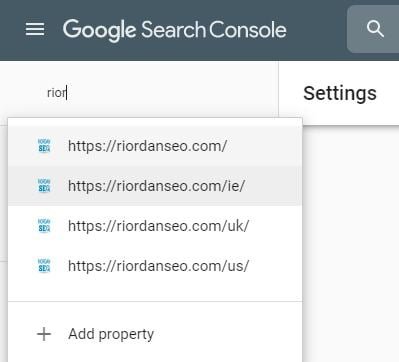5 Ways Your Web Hosting Can Affect Your Website’s SEO
Websites have become an integral part of any organization as a result of the exponential expansion of digitalization. Everyone wants their website to be ranked on the first page of search engines, regardless of their sector or company size. It’s understandable, given that websites on Google’s or other search engine’s second pages are unlikely to gain any visitors.
That is why your website needs to be optimized to help you rank higher on search engines. Just like on-page and off-page SEO, your web hosting plays a key role in your search engine rankings and overall business’ online success. She In Charge, a digital marketing agency, shared their thoughts below on hosting factors affecting Google’s ranking. Here are 5 of these factors that can affect the SEO of your website.
1. Speed
Contents
The average website load time is around 2 seconds, and research reveals that if your site takes longer than 3 seconds to open, 40% of visitors will quit it, which might have a significant impact on your overall traffic. This is taken into account by Google’s algorithms when detecting delayed page loading, which directly impacts your SEO. Google decided to incorporate load time into their ranking algorithms in 2010. This is because Google noticed that people were abandoning their search engine owing to slow loading speeds, which resulted in a decrease in ad revenue.
Site speed has become so important in determining how people see your company online and how much faith they place in you. Your online clients and visitors will lose trust if your site takes too long to load or is unresponsive.
Free or low-cost hosting providers frequently do not do much in the way of improving the speed and performance of their servers. Overburdened servers and a lack of infrastructure can cause your website to load slowly. This will degrade the performance of your website in two ways. For starters, slow sites irritate users, who frequently press the “back” button or quit your site entirely. Second, Google isn’t interested in “waiting” to see what’s on a specific page.
You can use tools like Pingdom, GT Metrix, and Google’s PageSpeed Insights to check the speed of your web pages. These tools provide reports on the performance of a page on both mobile and desktop devices. It will also make suggestions for how to improve the page.
2. Server Uptime/Downtime
Downtime is the amount of time that your website is unavailable and unreachable. It is far worse than showing your audience a slow website. The web host is frequently the source of downtime. A website’s downtime can be caused by various factors, including a security breach, hardware failure, or an overburdened server.
Whatever the cause of a site outage, the result is terrible and spells doom for your organization. When your website is down, you lose leads and consumers, and your business suffers as a result. In addition, search engines will mark your website as unreliable and unreachable. It won’t have users click on a result that’s towards the top of the search results page only to discover it’s unavailable. Any downtime on your website can hurt your search engine optimization, and your site may eventually disappear from the search results pages. For any digital marketer, having no presence on search engines is the worst nightmare.
To avoid this, choose a web server that can provide you with near to 100 per cent uptime. If your website experiences a lot of downtime, this could be the first clue that you need to find a new web host.
3. Server Location
The location of your website’s hosting can have an impact on its performance and load times. When you have a shared VPS or dedicated server hosting package, for example, your website is housed in the physical data centre of your provider. As a result, the location may have a direct impact on load speed.
Having a faraway server location can make search engine algorithms suspicious, which can affect SEO. The optimal location for your data center is close to the majority of your site’s visits. If someone in Ireland is looking for you’re website and your target audience is in Ireland. Then you should have your web hosting located in Ireland.
This is when a CDN may be useful. It is a layer in the internet ecosystem that consists of a globally spread network of data centers and proxy servers. Material owners pay CDN operators to provide their content, whereas the CDN pays an IPS (Internet Service Provider) to host its servers in their data centres. The IP address of a server will affect Google search results, and a native server location will result in more relevant website traffic. Selecting a local host will make it simpler to reach a local audience and, in the long term, will improve your online store’s local search engine results.
4. SSL Certification – Because Security First!
An SSL certificate is a key aspect of SEO that determines whether your site’s position improves or declines. Because the number of incidences of fraud is increasing, trust is becoming increasingly important in the online world. Who will want to do business with you if their browser warns them of a “possible risk”? Now, if the consumer doesn’t trust you, Google won’t either, which is something you don’t want! You won’t be able to sell anything if the user doesn’t trust your site! Your brand will most likely die out quickly.
Installing an SSL certificate on your website is the best option here! It encrypts the connection between your server and your user’s web browser. This also leads to the secure exchange of personal data. Furthermore, Google has been considering SSL certification as a ranking criteria since 2014.
5. Database Connection Failure
If you and your visitors receive a warning notice that states Internal Server Error or Database Connection Failed while accessing your website, it’s possible that your server is overburdened. However, while this may not affect your search engine optimization score as much as your site being completely unavailable, it will significantly increase your bounce rate.
You can make a cached copy of your website or popular pages as a short-term solution so that your visitors don’t have to connect to your web host’s database. You should consider increasing your web hosting plan for a long-term solution. The fact that you don’t have adequate bandwidth to handle all of your website traffic is a common cause of database issues. If you’re not already using these hosting options, ask your hosting provider about upgrading to a VPS or Cloud Web Hosting plan.
Key Takeaway
Every business owner wants their website to continuously rank high in search engine results pages (SERPs). You must host your website on a reliable web host in order for it to function effectively. A good hosting solution can assist you ensure that your online services are secure, accessible, and reliable. So, when you are looking for a hosting service, make sure you do not overlook the aforementioned factors.




